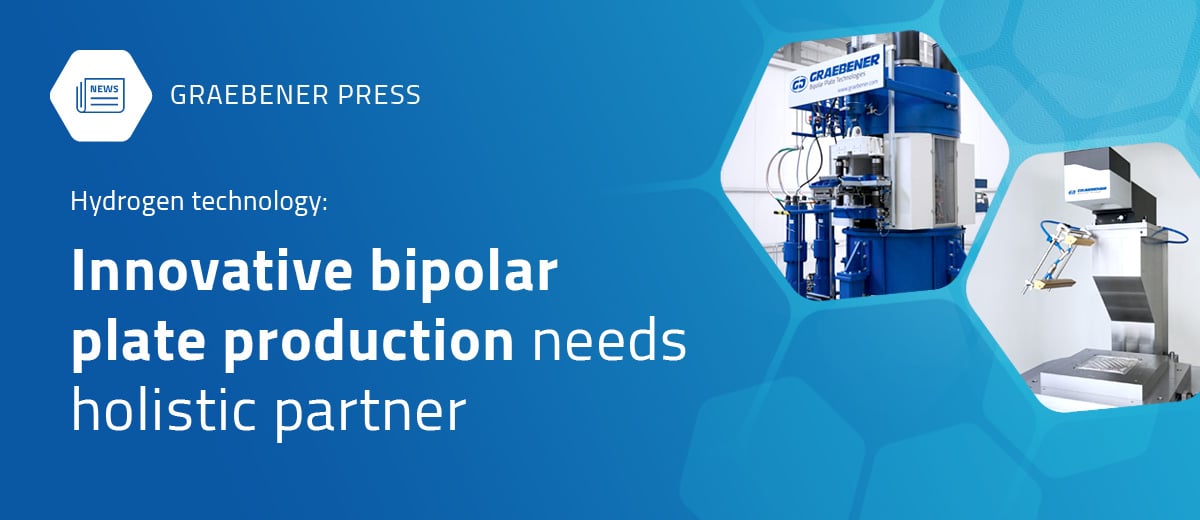With its national hydrogen strategy, Germany has created an attractive framework for advancing the development and expansion of climate-friendly generation and usage of hydrogen energy. Many projects with fuel cells in passenger and heavy-duty transport, in shipping or in the industrial sector already demonstrate the potential. But when can such flagship projects also be implemented on an industrial and affordable scale?
Modern bipolar plate production made in Germany
Core components such as bipolar plates are a key factor for this. It is about the fact that these elementary components of a fuel cell stack can be efficiently designed, optimized and manufactured. For Graebener® Bipolar Plate Technologies, the plant and machinery manufacturer, this is no longer a vision of the future. Over the past 20 years, the company has intensively researched, developed and invested significant resources in order to offer sophisticated, integrated solutions: complete, individual production lines for the production of metallic bipolar plates in combination with coordinated and accompanying services.
Dipl.-Ing. Fabian Kapp, Managing Director at Graebener®: "We see ourselves as a holistic development partner for the customer. Upon request, we accompany our customers from the first design draft of the bipolar plate to the customer-specific production line. By doing so, we ensure a future-proof development of new markets."
The application lab for verification, optimization and pre-buy services
Just how serious Graebener® BPT is about its development partnership is demonstrated by its in-house application laboratory. Using patented Graebener® equipment for hydroforming, laser welding and laser cutting, the company has created one of the most modern and comprehensive facilities for prototyping and small batch production. All steps are accompanied by engineering in the form of plate design analysis and optimization. Correspondingly, the feedback and interest are high.
Dipl.-Phys. Patrick Müller, Project Manager Research & Development: "We are cooperating closely with international customers from a wide range of sectors. This ranges from the automotive industry and stack producers up to institutes and research facilities. Depending on the customer, the questions we respond to with the application lab vary. Starting with questions about the design optimization of bipolar plates over forming limits of metallic materials up to small series in order to realize demonstration objects. With our application laboratory, we provide resilient answers and the certainty that it will work in the implementation."
The optimum between bipolar plate design and manufacturing opportunities
The target of all customers is similar: It is mostly about finding the optimum between functionality and manufacturing process with regard to stable and solid series production with high output. With its application lab, Graebener® BPT has one of the very few facilities in the world that can perform these complex verifications and optimizations under practical conditions. "Our partners are enthusiastic about the quality we can consistently and economically produce," explains Fabian Kapp.
According to Patrick Müller, the application lab meets another essential function in addition to verification, optimization and prototyping: It is an ideal module in the ramp-up phase for companies that want to enter the market for hydrogen technology respectively fuel cell production. This means that Graebener® BPT produces initial samples or small batches for these companies in the application lab. This pre-buy service fills the gap right up to the customer's own production line. The customer may successively ramp up on-site capacities and benefits from an early market entry as well as a smooth transition to their own production line.
A core achievement for Germany's hydrogen project
"No matter what problem a customer brings with him or where he stands in his project, we always offer the appropriate opportunity to dock with the application lab and reach the goal with us. One might say, we are a nucleus of hydrogen technology", says Managing Director Fabian Kapp.
